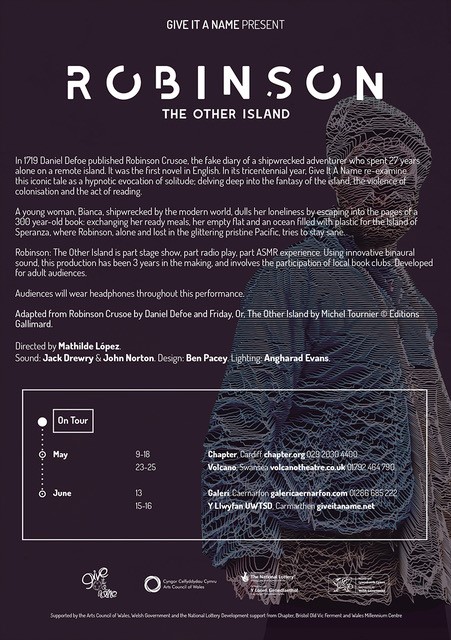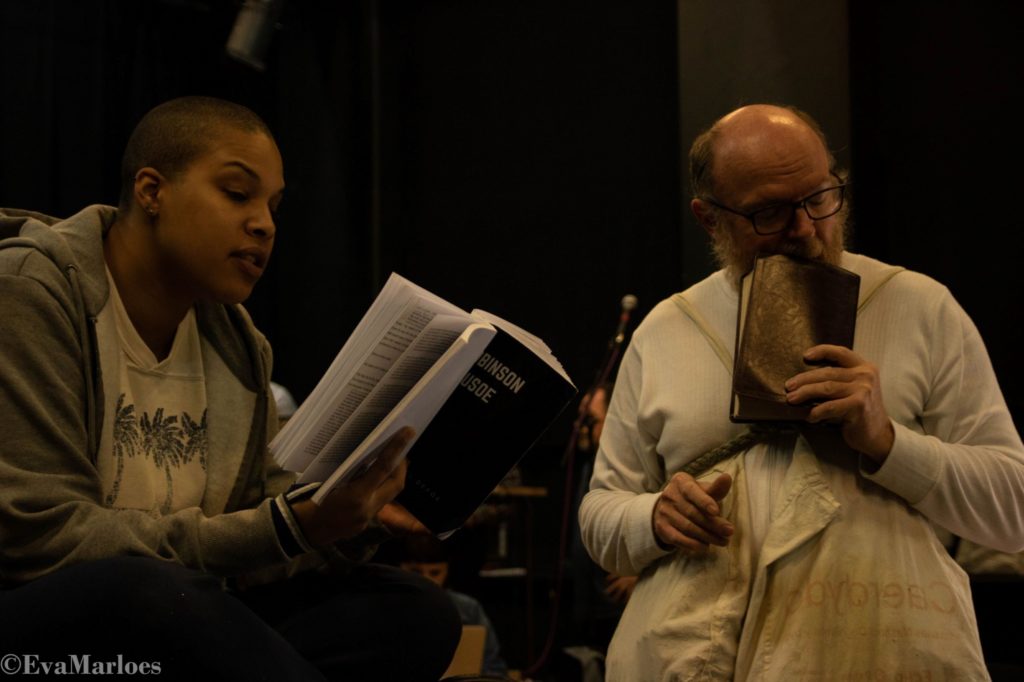
 (5 / 5)
(5 / 5)
In the 300th anniversary of the publication of Daniel Defoe’s Robinson Crusoe, Robinson. The Other Island offers a multilayered way to rethink the book. Director Mathilde Lopez and John Norton, Artistic Director of the company Give it a Name, blend Robinson Crusoe with Michel Tournier’s Friday and convey a somber mood through an original sound experience, devised by John Norton and Jack Drewry. The play unfolds in our heads as we listen to the sounds, words, and music with headphones. Robinson is more than a play; it is a shared and intimate experience of reading and reflecting on solitude.
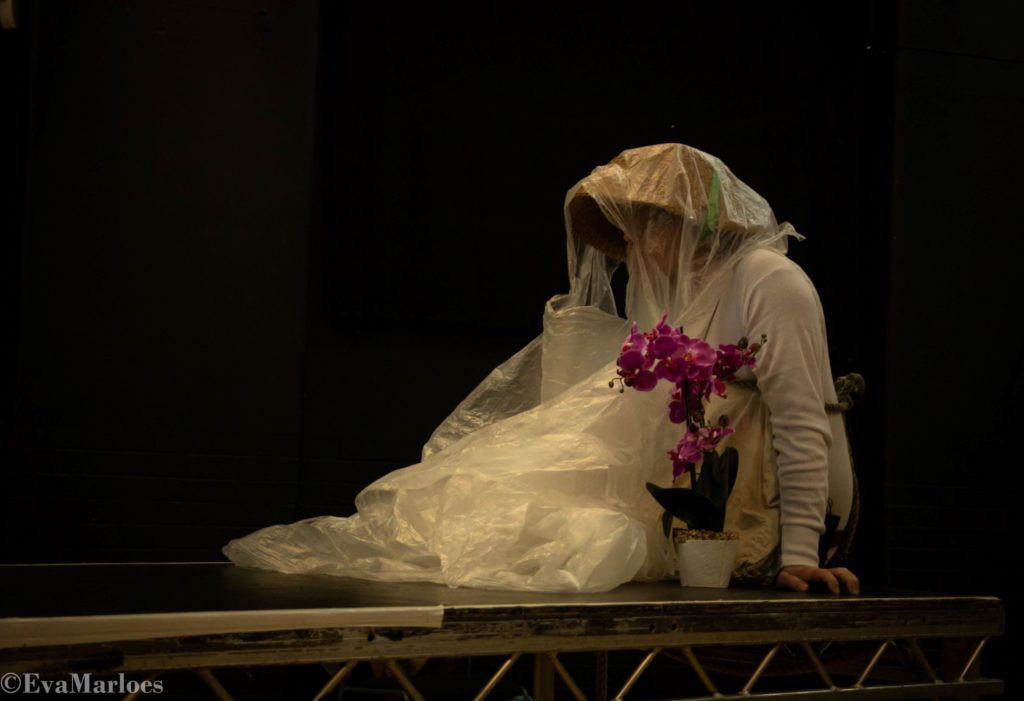
The Robinson Crusoe of Robinson. The Other Island (played by John Rowley) suffers a maddening loneliness alone on the Island, but lonely is also Bianca (played by Luciana Chapman), who reads Defoe’s and Tournier’s books. Bianca is alone in her flat, eating microwavable meals, trying to work out how to fix a leaking tap, hiding from her father, and yet seeking a connection with him. As Bianca reads about Robinson in our ears, it is also us who experience loneliness. Isolated from other members of the audience by headphones, yet establishing a connection with them as we watch and listen together. The drama is at times broken by the lively and funny interventions of book clubbers talking about Robinson Crusoe into the mics of Robinson and of Bianca. It is effective, although on opening night there were perhaps too many voices, rather than the one or two during rehearsals, thus losing intensity.
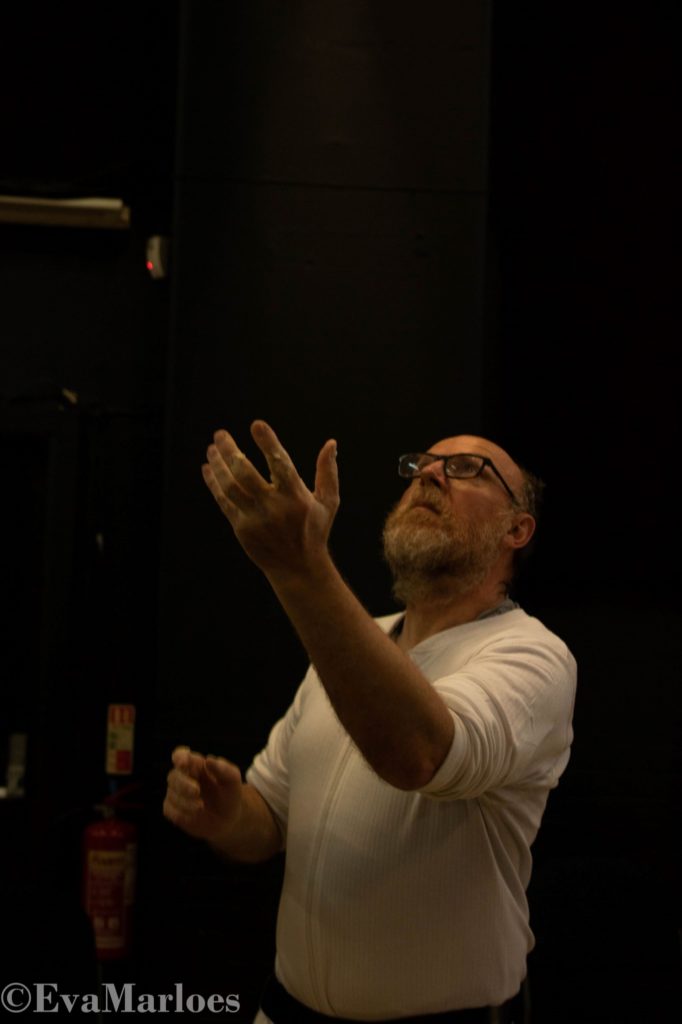
Robinson Crusoe’s misogyny, racism, and colonialism are not brushed under the carpet but take centre stage. They are tackled with humour, puzzlement, and even violence. At the words ‘I bought me a negro slave,’ Bianca gets angry in her anger she becomes Robinson. She orders to fetch the Governor’s coat (Robinson’s), smokes, and reads the horrendous passage where ‘negroes’ are things, tools of work, lesser humans. The colonial racism is juxtaposed with Gil Scott-Heron’s ‘Whitey on the Moon,’
The 1970’s that contrasts the power of white man colonising the moon while black people have no money to pay the doctor’s bill. Bianca takes up a plank of wood and attacks Robinson breaking into the world she is reading about.
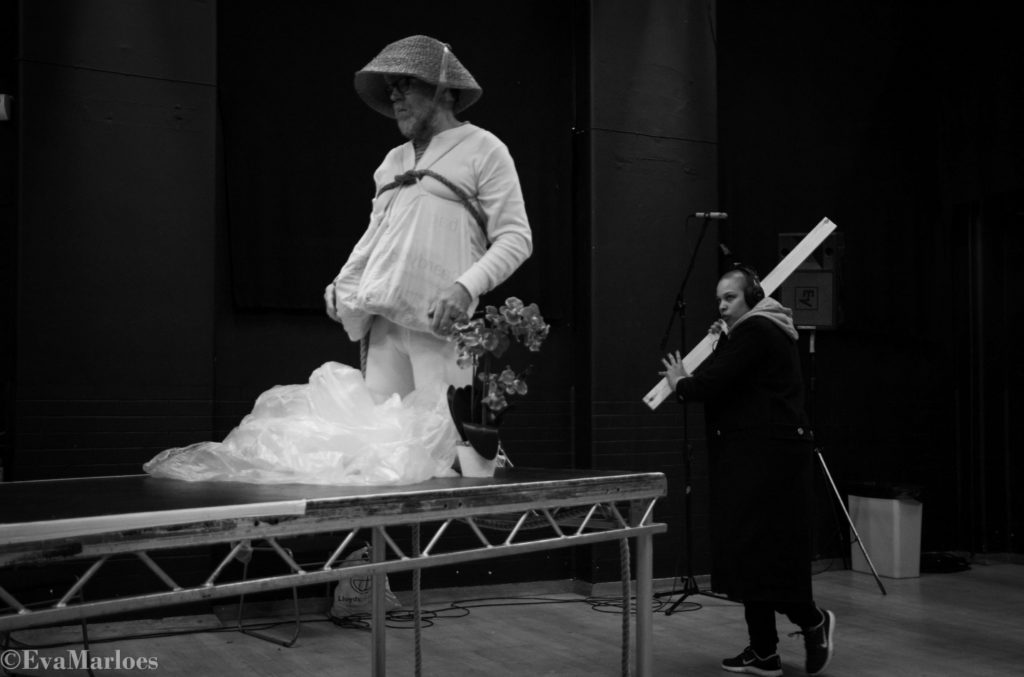
Bianca and Robinson interact only slightly. It is a dance of two lonely people seeking connection and forgiveness. Robinson is shown in his humanity: lonely, resourceful, exploring and observing the island, fighting against his destiny, and begging for forgiveness. A soft music creates intimacy. Bianca and Robinson sit together playing with dough like children and like children the audience listens to the voice reading the book. In the week when Jean Vanier, the founder of the community L’Arche, died, Robinson reminds me of his teaching on loneliness:
‘Loneliness is part of being human, because there is nothing in existence that can completely fulfill the needs of the human heart. … It is because we belong with others and see them as brothers and sisters in humanity that we learn not only to accept them as they are, with different gifts and capacities, but to see each one as a person with a vulnerable heart. We learn to forgive those who hurt us or reject us; we ask forgiveness of those we have hurt.’
Robinson is a meditative piece that stimulates thought and nudges us slightly towards compassion.
The production plays at Chapter Arts Centre, Cardiff and then tours.
